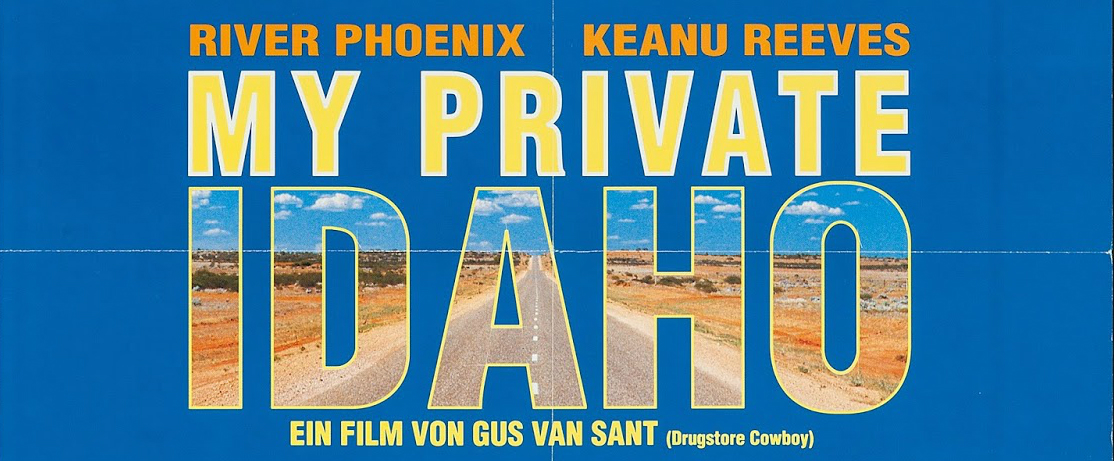
This is REKT, the column where each month one Cinepunx staffer recommends films to the rest of the fam. We may be stoked, or we may be wrecked. This month, it’s Adrianna Gober’s turn to do the damage. Here are Trey Lawson’s thoughts on My Own Private Idaho.
My Own Private Idaho is one of my big blindspots of ’90s cinema, and it is especially egregious considering that when I’m not writing about film, I write about English Renaissance history plays. This film is, of course, partly a loose adaptation of Shakespeare’s Henry IV plays transposed into early ’90s Portland, among other places. I suppose my hangup for all these years was Gus van Sant. I’ve never considered myself much of a van Sant fan, but admittedly that is mostly based on his output from the early 2000s (although I do have an appreciation for his Psycho remake — don’t @ me). Needless to say, I was surprised at just how much I was moved by My Own Private Idaho, in no small part due to the performances of the two leads.

Structurally, My Own Private Idaho plays almost like two films edited together, one following narcoleptic street hustler Mike (River Phoenix) and another about his wealthy best friend Scott (Keanu Reeves). This dual narrative structure could easily have been disjointed to the point of distraction, but by grounding it in the relationship between the two protagonists they juxtapose in a way that is thematically interesting. I fully expected to be more drawn in by Scott’s story, as he is the Shakespearean analogue (standing in for the wayward Prince Hal in Henry IV), and that section of the film is very compelling as a kind of experiment in modernizing that early modern text’s emphasis on coming of age and legitimacy. But experiment is the key word; the language in these scenes, particularly between Scott and Bob (the film’s Falstaff character) is deliberately Shakespeare-ish in a way that clashes with the grungy ’90s setting. Reeves is very good, and his natural stoicism lends itself to the kind of emotional distance his character puts between himself and everyone else (the audience included). But the most compelling and emotionally powerful part of the film is Mike’s physical and mental deterioration as he searches for his mother. This half of the film is what provides anything like narrative (and geographic) momentum, and Phoenix’s performance is just as inviting and sympathetic as Reeves’ is inscrutable. In putting the two together, we are invited to compare the poor, lonely kid trying to survive with his wealthy, performative friend who can walk away from the situation at any time.

I’m no expert on his filmography, but this is, I think, River Phoenix’s best performance. The vulnerability he brings to Mike is palpable in every scene, and in many ways he is the emotional anchor that allows the film to get away with digressing into the Shakespearean segments. His fireside confession to Scott is perhaps the most real cinematic depiction of honest unrequited affection I have ever seen, and the way he just falls apart once Scott leaves is heartbreaking. The ending, which evokes fellow road movie Easy Rider, left me just as devastated as Scott’s transition back to his upper class world left me cold. I know I’m not breaking new ground saying this, but it is criminal that we lost Phoenix so young. That said, Reeves is good too — in fact, his performance of the Shakespeare-ish scenes here might be better than what I’ve seen of his actual Shakespearean performances. By this point, his star persona was pretty well established, but the character is against type enough that he is able to play off of it in some interesting ways. His chemistry with Phoenix, as well as with William Richert (Bob) keep his character from being too much of a blank slate, although his eventual romance in the film’s third act mostly falls flat.

My Own Private Idaho exceeded every expectation I had for it. As a road movie, a coming of age movie, an experiment in Shakespearean adaptation, and even just as a snapshot of a particular subculture in the early ’90s, it makes for captivating cinema. The film is far more sincere than I ever expected a Gus van Sant arthouse movie to be, and it is fully deserving of the accolades it has accumulated over the years. If you’ve seen it before, you know what I mean — and if you haven’t, don’t be like me and allow preconceived notions to keep you from checking it out. I didn’t know how much I needed My Own Private Idaho, and I’m thankful to Adrianna and Cinepunx for getting me to finally watch it.




